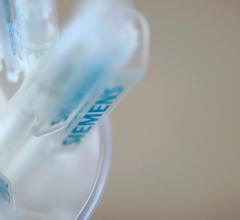
July 11, 2018 — Placement of implantable cardioverter defibrillators (ICDs) not meeting Centers for Medicare and Medicaid Services (CMS) National Coverage Determination criteria declined following the announcement of a U.S. Department of Justice (DOJ) investigation into potential overuse of such devices. This conclusion was drawn from a recent study of hospitals participating in the NCDR ICD Registry.
CMS created a National Coverage Determination for ICDs in 2005. The NCD incorporated the available clinical evidence and aligned payment practices for primary prevention ICDs in patients insured under Medicare.
The DOJ notified hospitals of an investigation into potential overuse of ICDs in 2010; the investigation was made public in January 2011. Upon the conclusion of the investigation in February 2016, the DOJ reached settlements with more than 500 hospitals for over $280 million total for Medicare claims not meeting the National Coverage Determination.
“When the National Coverage Determination was first announced, there were concerns about potential overuse of ICDs,” said Nihar Desai, M.D., MPH, lead author of the study and assistant professor of medicine at Yale School of Medicine. “Between 2007 and 2015, there were significant declines in the proportion of primary prevention ICDs placed for indications not meeting National Coverage Determination criteria at all hospitals with larger and more rapid declines after the announcement of the investigation at hospitals that reached settlements with the DOJ. There were similar declines observed among non-Medicare patients.”
Using NCDR ICD Registry data to determine if the DOJ investigation changed clinical practice, researchers analyzed 300,151 primary prevention ICDs in Medicare patients at 1,809 hospitals between January 2007 and December 2015. Of the 502 publicly named hospitals that reached a settlement with DOJ, 470 were matched to facilities in the ICD Registry. Two facilities were confirmed to have closed and 16 did not submit data or their data did not meet NCDR quality standards. Researchers also analyzed the data of non-Medicare patients to determine if the DOJ investigation impacted the overall patient population undergoing ICD implantation.
Patients receiving ICDs at both hospitals that did and did not settle with DOJ were on average 75.1 years old. Seventy-one-point-five percent were male, 41.8 percent had diabetes and 54.4 percent had suffered a heart attack. Hospitals that settled with the DOJ were larger, private facilities with higher case volumes and more likely to be located in the South and West regions of the United States.
The study used interrupted time series to investigate the changes in the proportion of ICDs not meeting the National Coverage Determination criteria at six-month intervals. Interrupted time series are used to estimate the associations with a policy intervention or other natural experiment when there are at least four data points both before and after the event. The model evaluated three time periods: pre-DOJ investigation (January 2007-December 2009); DOJ investigation announcement (January 2010-June 2011); and post-DOJ investigation announcement (July 2011-December 2015).
In the first half of 2007, 25.8 percent of ICDs at hospitals that settled and 22.8 percent of ICDs at hospitals that did not settle did not meet the National Coverage Determination. Over the full study period, there was a 16.1 percent decline in ICDs not meeting the National Determination Coverage criteria at hospitals that settled with the DOJ and a 12.1 percent decline in hospitals that had not.
The interrupted time series analysis found prior to the announcement of the DOJ investigation that the proportion of ICD placements not meeting the National Coverage Determination was relatively stable, and the rate of decline was modest and similar among all hospitals. During the DOJ investigation announcement, researchers found significant declines in the proportions of ICDs not meeting the National Coverage Determination at all hospitals. However, the rate was much larger and more rapid at hospitals that went on to reach settlements. At the end of the study, the amount of ICDs not meeting the National Coverage Determination criteria were similar in both groups.
Rates of ICD implants not meeting the National Coverage Determination criteria also fell among non-Medicare patients at both hospitals that did and did not settle with the DOJ.
Overall, there were declines in ICD implants not meeting the National Coverage Determination, but there was variation at the hospital-level. At top performing facilities, less than 3.8 percent of ICD implants did not meet the National Coverage Determination criteria while lower performing facilities had more than 14.3 percent of ICD implants not meeting the criteria.
“The hospital-level variation may reflect continued room for improvement but may also indicate a gap in the national coverage determination. As current guidelines state, care for a particular patient ultimately falls to the clinician and that patient and thus the guidelines may not fit all patients,” Desai said. “The DOJ did acknowledge there are valid clinical indications for placing an ICD outside the National Coverage Determination criteria. CMS updated the criteria in 2017 to include new clinical studies and updated guidelines.”
Study limitations include that all non-Medicare patients may not be included as hospitals are only required to submit data on Medicare patients—though 80 percent of participating hospitals report all ICD implantations, regardless of payer; there is no public list identifying all the hospitals investigated by the DOJ; and interrupted time series analysis attributes changes to a single factor. Lastly, researchers were unable to assess whether the DOJ investigations led to any barriers in the placement of clinically indicated ICDs.
The full study was published in the Journal of the American Medical Association.
For more information: www.jamanetworks.com/journals/jama
Reference


 November 14, 2025
November 14, 2025 









